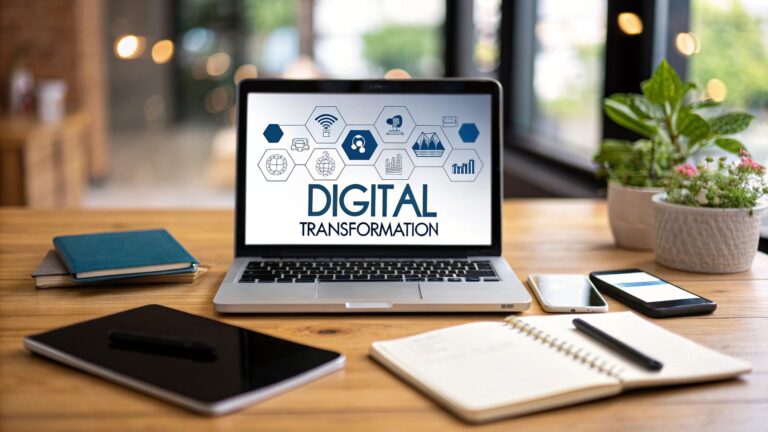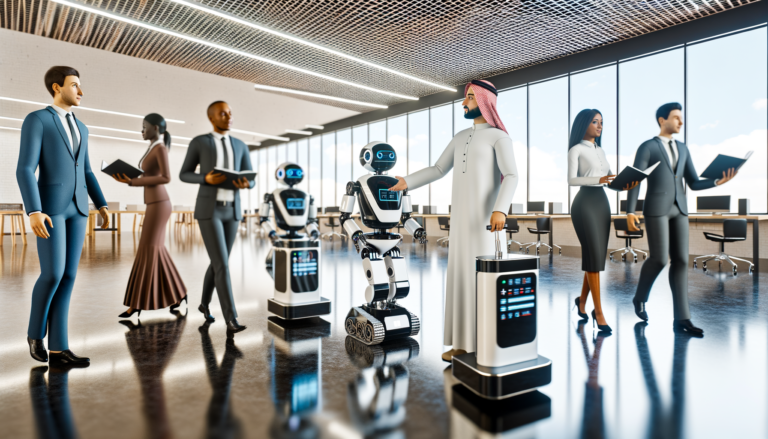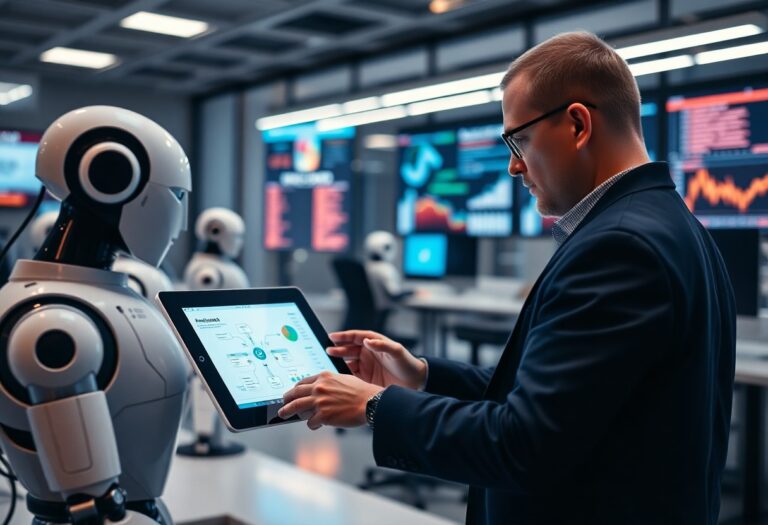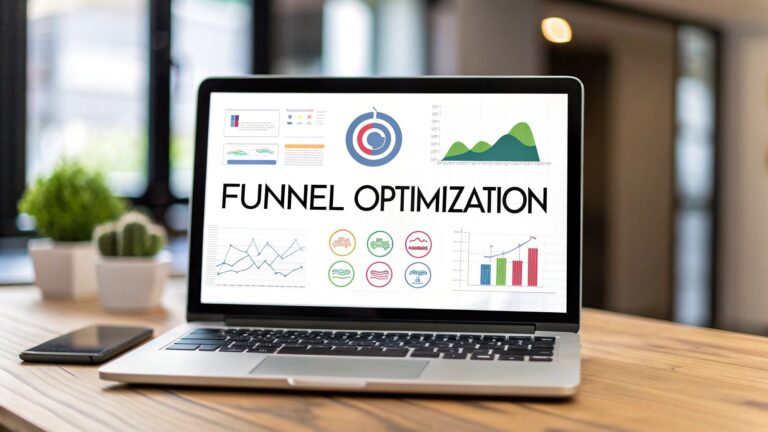Harnessing Efficiency Through Automation in the Agency Landscape
In an era where time is paramount, automation stands as a beacon of innovation for marketing agencies. This article delves into how automation reshapes the agency ecosystem, augmenting productivity, enhancing creativity, and redefining the industry standards.
The Rise of Automation in Business
The historical development of automation technology in business processes has significantly transformed the landscape across various industries, with marketing agencies being no exception. An examination of this evolution reveals a journey from rudimentary control mechanisms to sophisticated AI-driven systems that optimize operations, enhance efficiency, reduce costs, and increase precision in tasks that previously demanded considerable human intervention.
Initially, automation in businesses relied on mechanical systems designed to perform simple, repetitive tasks. These systems streamlined operations but were limited in scope and flexibility. As technology advanced, the introduction of computers and software applications expanded automation’s capabilities, allowing for the automation of more complex tasks such as data entry and analysis.
The real revolution came with the advent of Artificial Intelligence (AI) and Machine Learning (ML), technologies that have propelled automation to new heights. In the context of marketing agencies, AI-driven automation has become a cornerstone for innovation and efficiency. Agencies now leverage these technologies to automatically schedule content across multiple platforms, analyze vast amounts of marketing data to glean insights, personalize customer interactions, and optimize ad spending and placement.
The advantages are clear: tasks that would have consumed hours of human labor can now be executed with unprecedented speed and accuracy. For instance, AI algorithms can sift through data to identify trends and patterns that inform more effective marketing strategies. Similarly, automated content scheduling ensures that posts are published at optimal times without the need for constant human oversight.
A notable application within agency settings is the use of automation in campaign management. Automation tools can track the performance of various marketing channels in real-time, allowing agencies to dynamically adjust their strategies for maximum impact. This real-time adjustment capability is essential in the digital marketing space, where consumer preferences and online landscapes change rapidly.
Moreover, automation has facilitated a more strategic use of human talent within agencies. By automating routine and data-heavy tasks, creative professionals can allocate more time to conceptualizing and implementing innovative ideas. This shift not only boosts productivity but also enhances job satisfaction among agency staff by enabling them to focus on more fulfilling and high-value activities.
In essence, the rise of automation has heralded a new era of efficiency, cost-effectiveness, and precision in the agency landscape. By embracing these technological advancements, agencies are better positioned to meet the evolving demands of the digital marketing world and deliver superior value to their clients.
The Modern Agency Model
The evolution of advertising agencies into their modern, automation-integrated form signifies a remarkable transformation in how marketing services are conceived, executed, and optimized. From the early days of newspaper ads and billboards, the advertising world has shifted dramatically with the digital revolution. This change didn’t just expand the canvas for creativity but also the complexity and speed at which marketing operates. The seamless incorporation of automation tools into the agency landscape has emerged as a linchpin in this evolution, reshaping roles, services, and workflows to match the pace and scale of digital marketing.
In the initial phases, agencies were primarily focused on creative outputs—crafting messages and designing advertisements. However, the advent of digital marketing introduced a myriad of new channels and data points, necessitating a more nuanced approach to campaign management and audience engagement. Traditional roles expanded, giving birth to specializations in digital strategy, data analysis, and user experience, among others. This diversification underscored the need for a more efficient way to handle the growing complexity of marketing campaigns. Automation emerged as the answer, providing tools for agencies to manage repetitive tasks, analyze large datasets, and optimize campaigns on the fly.
Automation in modern agencies now extends beyond simple task management. Sophisticated platforms enable real-time adjustments to campaigns, leverage analytical insights to guide creative processes, and facilitate direct and personalized client interactions. This has not only streamlined workflows but also empowered agencies to make more strategic decisions. The dynamic nature of digital marketing means that campaigns can now be continually refined to improve performance, a process made feasible and efficient by automation technologies.
Moreover, automation has fostered a hybrid agency model that blends creative intuition with data-driven precision. In this setup, creative teams can focus on innovation and storytelling, while automation tools handle the optimization of campaigns across various channels, monitor performance metrics, and generate actionable insights. This synergy between human creativity and machine efficiency has elevated the capabilities of agencies, allowing for campaigns that are both artistically profound and meticulously targeted.
The integration of automation tools has also reshaped client interactions. Agencies now offer clients more transparency and agility in managing campaigns, with platforms that provide real-time progress updates and performance metrics. This immediacy in feedback and adjustment capabilities ensures that campaigns remain aligned with clients’ evolving objectives and market dynamics, fostering a more collaborative and responsive client-agency relationship.
As the agency landscape continues to evolve under the influence of digital transformation and automation, the focus shifts towards leveraging these tools not just for operational efficiency but as catalysts for creativity and strategic innovation. The subsequent chapter will delve into the future of automation in marketing agencies, exploring potential advancements and addressing the challenges and opportunities that lie ahead. With automation becoming increasingly central to the agency model, the future promises an even greater fusion of technology and creativity, reshaping the essence of marketing agencies.
Streamline Your Business with Cutting-Edge Automation
Empower your business with powerful automation tools designed to enhance workflows, improve efficiency, and drive online impact.
Book a CallThe Future of Automation in Marketing Agencies
Building on the foundation of the modern agency model, which has seen automation become a central element in streamlining workflows and enhancing creativity, the future of automation within marketing agencies holds a vast landscape of potential implications and advancements. The evolution of these technologies is set to further revolutionize the way agencies operate, forecast market trends, and personalize campaigns to unprecedented levels.
As we look towards this future, several key areas of impact can be anticipated. The capability to handle larger volumes of work through automated processes will enable agencies to scale their operations efficiently. Automation tools utilizing artificial intelligence and machine learning can analyze massive datasets to predict market trends with a greater degree of accuracy and speed than ever before. This predictive power can then inform the strategic planning of campaigns, ensuring that marketing efforts are more aligned with consumer behaviors and preferences.
Moreover, the personalization of client campaigns is set to reach new heights. Automation technologies will allow for the dynamic tailoring of content to individual users, enhancing engagement and conversion rates. This hyper-personalization will be powered by deep learning algorithms that refine their understanding of consumer preferences over time, delivering content that resonates on a personal level.
However, the march towards automation does raise concerns, particularly around job displacement and the shifting landscape of required skill sets within the industry. Roles traditionally centered around manual data analysis and repetitive task execution may diminish, giving way to a demand for skills in data science, system analysis, and strategic oversight of automated processes.
To navigate these changes, agencies will need to embrace strategies that future-proof their workforce. Investing in employee training programs to cultivate new skill sets will be crucial. This upskilling effort should focus not only on technical abilities but also on strategic and creative skills that leverage the insights and efficiencies gained from automation tools. Furthermore, forming partnerships with technology vendors can provide agencies with access to state-of-the-art automation solutions and the expertise to integrate these systems effectively into their operations.
The advancement of automation within marketing agencies presents a dual-edged sword, with the potential to dramatically enhance efficiency, insight, and personalization, while also necessitating a reevaluation of traditional agency roles and skills. The agencies that will thrive in this evolving landscape are those that recognize and prepare for both the opportunities and challenges that automation brings.
Conclusions
As we’ve seen, automation is not merely a trend but a transformative force in marketing agencies. It brings about unmatched efficiency, precision, and the ability to harness creativity at scale. Looking forward, agencies that embrace and integrate automation will lead the vanguard of an optimized marketing landscape.







